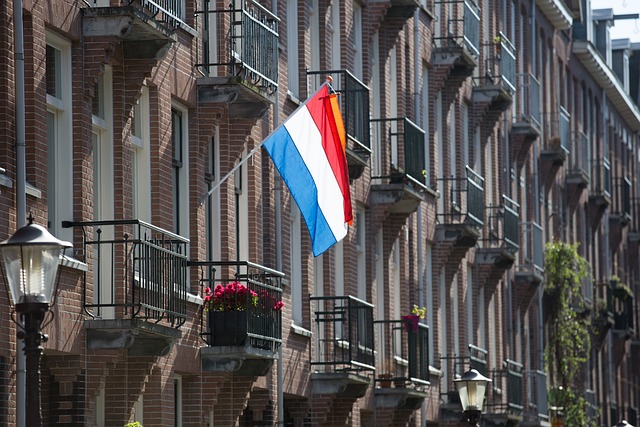Retirement in the Netherlands: What You Need to Know

The Netherlands, with its high quality of life, excellent healthcare system, and vibrant culture, is an attractive destination for retirees. Whether you’re a Dutch citizen or an expatriate considering the Netherlands as your retirement haven, it’s essential to understand the country’s retirement system, cost of living, and lifestyle options. This guide will provide you with all the information you need to plan a comfortable and fulfilling retirement in the Netherlands.
The Dutch Pension System: A Three-Pillar Model
The Netherlands is renowned for its robust pension system, which is based on a three-pillar model. This system ensures financial security for retirees and is one of the best in the world.
1. First Pillar: State Pension (AOW)
- What It Is: The state pension provides a basic income to cover essential living expenses.
- Eligibility: All residents who have lived or worked in the Netherlands are entitled to the AOW pension.
- Contributions: Funded through payroll taxes, with both employees and employers contributing.
- Benefits: The amount you receive depends on your years of residency in the Netherlands. As of 2023, the maximum monthly pension is approximately €1,387 for singles and €948 for each partner in a couple.
2. Second Pillar: Occupational Pension
- What It Is: Employer-sponsored pension schemes that supplement the state pension.
- Eligibility: Most employees in the Netherlands are automatically enrolled in an occupational pension plan.
- Contributions: Both employees and employers contribute to the plan, with rates varying depending on the employer and industry.
- Benefits: The pension amount depends on your salary, years of service, and the performance of the pension fund.
3. Third Pillar: Private Pension
- What It Is: Voluntary private savings and investments to supplement the state and occupational pensions.
- Options:
- Annuities: Regular payments from an insurance company.
- Savings Accounts: Tax-advantaged accounts for retirement savings.
- Investments: Stocks, bonds, and other investment vehicles.
- Benefits: Provides additional financial security and flexibility in retirement planning.
Cost of Living in Retirement
The Netherlands has a high cost of living, which is an important consideration for retirees. Here are some key expenses to keep in mind:
1. Housing
- Renting: Renting a two-bedroom apartment in a city like Amsterdam or Utrecht can cost between €1,200 and €2,500 per month.
- Buying: Property prices are high, with the average price per square meter ranging from €3,000 to €8,000 depending on the location.
2. Healthcare
- Health Insurance: Mandatory for all residents, including retirees. Premiums can range from €100 to €150 per month, with additional costs for supplementary coverage.
- Out-of-Pocket Costs: Deductibles (eigen risico) are typically €385 per year, but this can vary.
3. Daily Expenses
- Groceries: A monthly grocery bill for a couple can range from €300 to €500.
- Transportation: Public transport is efficient but can be costly. A monthly pass in Amsterdam costs around €100.
- Leisure and Entertainment: Dining out, cultural activities, and hobbies can add up, with a monthly budget of €200 to €500 depending on your lifestyle.
Residency Requirements for Retirees
If you’re an expatriate planning to retire in the Netherlands, you’ll need to meet specific residency requirements:
1. Residence Permit
- Non-EU/EFTA Citizens: You’ll need to apply for a residence permit, which requires proof of financial self-sufficiency and adequate health insurance.
- EU/EFTA Citizens: You have the right to live in the Netherlands but must register with the local municipality.
2. Financial Requirements
- Proof of Income: You must demonstrate that you have sufficient financial resources to support yourself without working. This typically means having a stable income or savings.
3. Health Insurance
- Mandatory Coverage: All residents, including retirees, must have basic health insurance (basisverzekering).
Healthcare in Retirement
The Netherlands has an excellent healthcare system, but it’s essential to understand how it works for retirees:
1. Basic Health Insurance
- Coverage: Includes general practitioner visits, hospital care, and prescription medications.
- Premiums: Typically range from €100 to €150 per month.
2. Supplementary Insurance
- Coverage: Additional services like dental care, physiotherapy, and alternative medicine.
- Premiums: Vary depending on the level of coverage.
3. Long-Term Care
- Coverage: The Dutch system provides comprehensive long-term care (Wlz) for those who need it, funded through mandatory contributions.
Taxation in Retirement
The Netherlands has a favorable tax system for retirees, but it’s important to understand how your income will be taxed:
1. Pension Income
- State Pension (AOW): Taxable but often benefits from lower tax rates.
- Occupational and Private Pensions: Also taxable, with rates depending on your total income.
2. Wealth Tax
- Assets Tax: The Netherlands imposes a wealth tax (vermogensbelasting) on assets such as savings, investments, and real estate. Rates vary depending on your total wealth.
3. Double Taxation Agreements
- Avoiding Double Taxation: The Netherlands has agreements with many countries to avoid double taxation, which can be beneficial for expatriate retirees.
Lifestyle and Activities for Retirees
The Netherlands offers a high quality of life for retirees, with a wide range of activities and amenities:
1. Outdoor Activities
- Cycling: The Netherlands is a cyclist’s paradise, with extensive bike paths and scenic routes.
- Walking and Hiking: Explore the country’s beautiful parks, nature reserves, and coastal areas.
2. Cultural Events
- Museums and Galleries: The Netherlands is home to world-class museums like the Rijksmuseum and Van Gogh Museum.
- Festivals and Markets: Enjoy local festivals, markets, and cultural events throughout the year.
3. Community and Social Life
- Expat Communities: Many cities have active expatriate communities and social clubs.
- Volunteering: Opportunities to get involved in local organizations and causes.
Tips for Planning Your Retirement in the Netherlands
- Start Early: Begin planning your retirement as early as possible to ensure you have sufficient savings and understand the requirements.
- Consult Experts: Seek advice from financial advisors, tax experts, and legal professionals to navigate the complexities of the Dutch system.
- Learn the Language: While many Dutch people speak English, learning Dutch can enhance your experience and integration.
- Visit Before Moving: Spend time in the Netherlands to familiarize yourself with the culture, lifestyle, and housing options before making a permanent move.




